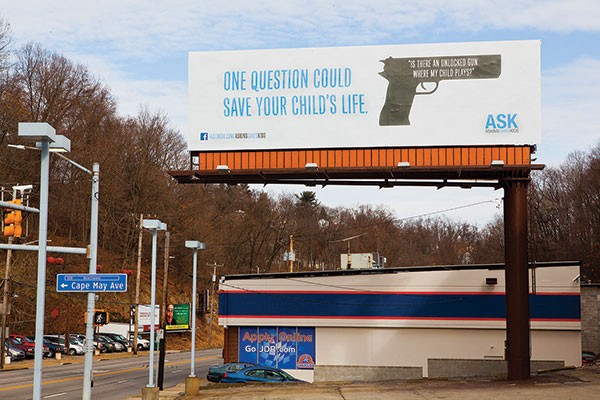For nearly 85 years, the Falk Foundation has flown under the radar in Pittsburgh's philanthropic community.
In October, the organization announced it would be shutting down next year — and until that point, some never even knew it existed. But from needle-exchange programs to community-benefits agreements and televised school-board meetings, the Falk Foundation has played a role in bringing plenty to Pittsburgh.
"I would say that the Falk Foundation legacy is that we put good ideas into practice well before their time," says Kerry O'Donnell, president of the foundation for more than a decade.
The Falk Foundation is a social- and racial-justice organization born from the Maurice and Laura Falk Foundation, which was created in 1929. The foundation's work behind the scenes has led to a number of progressive developments that have shaped the local community and increased opportunities for marginalized populations in Pittsburgh and nationally.
Back in 2005, for example, when Pittsburgh was poised to see the construction of a casino and new hockey arena in the North Side and Hill District, respectively, the Falk Foundation thought it would be a good idea for the residents of those neighborhoods to benefit from the development. That idea took the form of community-benefits agreements with the Rivers Casino and Consol Energy Center developments.
"Community-benefits agreements very often benefit communities of color, so we wanted the residents living around those developments to benefit because of the public subsidies going into those projects," O'Donnell says.
CBAs first caught O'Donnell's eye in California. After introducing the idea to the Pittsburgh community, Falk brought together the Pittsburgh Foundation, the Heinz Endowments, the POISE Foundation and the Women and Girls Foundation to bring it to fruition.
"That's something I've always loved about this job," says O'Donnell. "Being able to go out and find successful models throughout the country and bring them here."
As a result, the CBAs negotiated by local organizations Pittsburgh United and the One Hill Coalition, have created economic development, education and youth services, employment opportunities, work-force development and the Hill District's first grocery store in decades.
CBAs represent just one of the innovative ideas the foundation pioneered in Pittsburgh.
In 1968, the foundation — originally referred to as the Falk Fund — helped establish the Freedom House Ambulance program, which provided medical assistance to residents in the Hill District at a time before the city had emergency medical services. The black-owned ambulance company also provided jobs for African Americans throughout the city. Later, the city's emergency medical services were modeled after the Freedom House program.
Falk also had a hand in creating opportunities for ex-offenders. The foundation gave a grant to the Urban Affairs Coalition in Philadelphia to establish the Formerly Convicted Citizens Project in Pittsburgh. This organization was responsible for getting "Ban the Box" legislation passed in 2012, which prohibits City of Pittsburgh agencies and departments from asking job applicants questions related to a person's criminal background on initial job applications.
"[The foundation] brought a lot of life to this issue," says Dean Williams, who served as executive director of the Formerly Convicted Citizens Project. "It's the first time this kind of awareness has been brought to the issues facing people with criminal records. They gave me the resources to accomplish the mission I accomplished."
More recently, Falk has been involved in issues related to gun violence, including a billboard campaign launched by the Center to Prevent Youth Violence that asks the question, "Is there a gun in the home where my child plays?"















